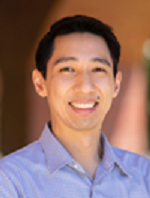In the history of Physics Education Research (PER), the greatest improvements have centered around what we can measure. In the 80’s and 90’s, “conceptual questions” – qualitative physics questions targeting fundamental physics principles and reasoning – were key to demonstrating the need for and efficacy of new instructional approaches. Today, PER is developing new measurements for better operationalizing and detecting what we aim to teach. In my talk, I will focus on development and testing of problem-solving assessments focusing on students’ ability to connect physical concepts and mathematical equations during physics problem solving. There is a growing body of evidence showing how this physical/mathematical connection can support learning, understanding, and problem-solving insights. I will discuss three assessment questions we developed, and how we used these to evaluate a Mathematical Sensemaking approach to teaching introductory physics that emphasizes coherence and student coherence-seeking. Compared to another parallel course section, the Mathematical Sensemaking course better developed students’ physical/mathematical coherence in two areas: (i) more connections between physical and mathematical problem-solving approaches and (ii) stronger attitudes favoring physical/mathematical coherence. I will end by discussing prospects for advancing the teaching of physics problem solving.
Bio:
Eric Kuo is an assistant professor in the Departments of Physics and Curriculum & Instruction at the University of Illinois Urbana-Champaign. He received his bachelor's degrees in physics and mathematics from Brandeis University. After a brief stint teaching high school physics, he began his graduate work at the University of Maryland, where he received his Ph.D. in physics in 2013. After working as a postdoctoral researcher at Stanford University and as a research associate at the University of Pittsburgh, he joined the University of Illinois in 2020. His work draws on cognitive and social learning perspectives to model physics students’ reasoning and learning processes. He applies these models to tackle a broad range of issues related to physics education, with a focus on mathematical reasoning, causal reasoning, problem solving, and developing productive beliefs about learning.
